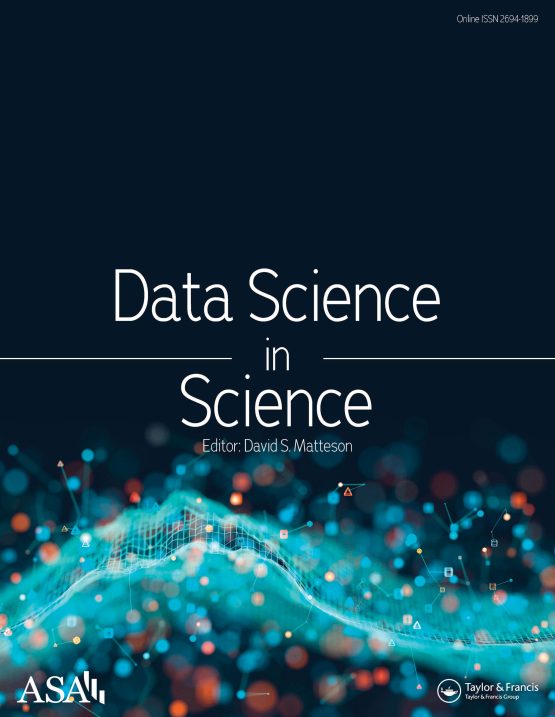Submit a Manuscript to the Journal
Data Science in Science
For a Special Issue on
Data Science for Wastewater Epidemiology
Manuscript deadline
30 September 2024


Special Issue Editor(s)
Katherine B. Ensor,
Department of Statistics, Rice University, USA
[email protected]
Lauren B. Stadler,
Department of Civil Engineering, Rice University, USA
[email protected]
Loren Hopkins,
Department of Statistics, Rice University & Houston Health Department, USA
[email protected]
Todd J. Treangen,
Department of Computer Science, Rice University, USA
[email protected]
David S. Matteson,
Department of Statistics and Data Science, Cornell University & Director, National Institute of Statistical Science (NISS), USA
[email protected]
Data Science for Wastewater Epidemiology
Dear Colleagues,
Wastewater surveillance has proven a cost-effective key public health tool to understand a wide range of community health diseases and has been a strong source of information on community levels and spread for health departments throughout the SARS- CoV-2 pandemic. Studies spanning the globe demonstrate the strong association between virus levels observed in wastewater and quality clinical case information of the population served by the sewershed. This Special Issue of Data Science in Science invites both original and survey manuscripts that bring together novel data science, machine learning, and AI methodology and applications in the field of wastewater epidemiology. We evaluate submissions on the basis of scientific rigor, technical depth, and ethical standards, regardless of perceived novelty. We also value high-quality papers with interesting and relevant research hypotheses and/or new datasets from previously untapped data sources. We welcome original, unpublished, and innovative submissions including, but not limited to the following areas of research:
- Scalable modeling strategies for trend estimation and forecasting of wastewater viral signal with uncertainty quantification.
- Understanding the association between wastewater signal for a specific virus and other virus signals that represent the extent of infection in the community, such as number of clinical cases or hospitalizations.
- Spatial change-of-support approaches to align wastewater measurements covering a specific geography with the geography suitable for public health department decisions and actions.
- Statistical approaches addressing infrequent observations above detections, that support strategies for decision making.
- Spatial and temporal sample design for optimal use of limited resources for wastewater epidemiology.
- Bioinformatics pipelines to identify viruses and variants of concern of a specific virus.
- Synthesis of multiple data streams, including viruses detected in wastewater, to support public health surveillance. Consideration of the needs of public health departments should be central to the arguments.
- Methodologies to develop synthetic data to support reproducible research and methodological advancement in wastewater epidemiology, noting that some public health data sets contain sensitive or personal information, limiting the free sharing of data.
Sincerely yours,
Katherine B. Ensor, Lauren B. Stadler, Loren Hopkins, Todd J. Treangen, David S. Matteson
Special Issue Editors
Looking to Publish your Research?
Find out how to publish your research open access with Taylor & Francis Group.
Choose open accessSubmission Instructions
• All manuscripts must be in English and written in accordance with the “Instructions for Authors" which can be found on the Journal’s homepage.
• All submissions will be peer-reviewed and meet the same requirements and standards as that of a regular paper submission.
• Submissions must not have been previously published in other journals or conferences; submissions that have already been uploaded to preprints such as arXiv are allowed.
• Select “Data Science in Wastewater Epidemiology” when submitting your paper to Data Science in Science in Submission Portal.
• Taylor & Francis are currently supporting a 100% APC discount for all authors. An APC will not apply to any new submissions (free and open access).
• For inquiries about the Special Issue, please contact the editors by e-mail.